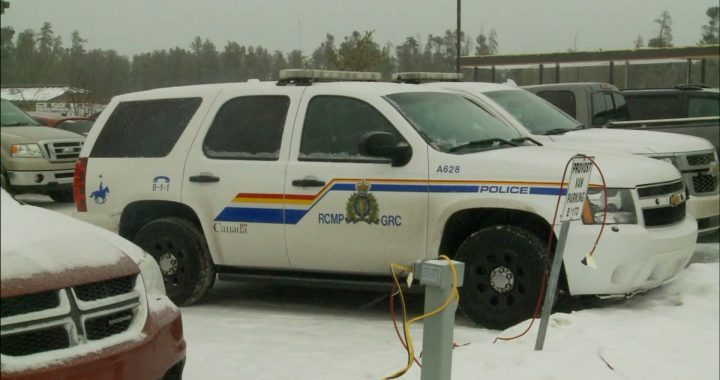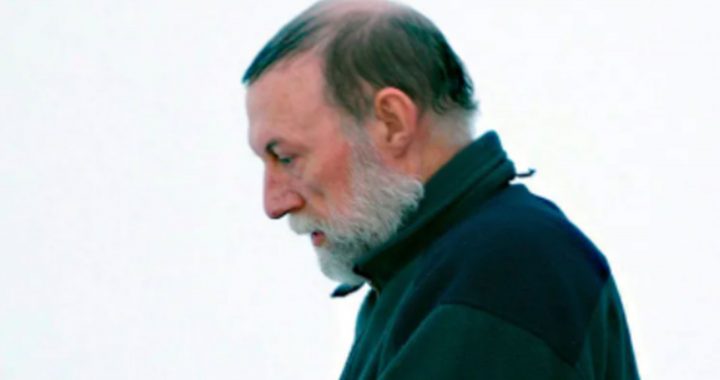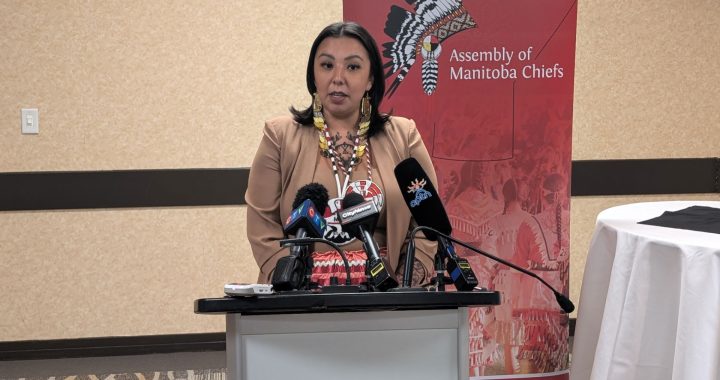High-profile advocates for the Quewezance sisters slammed the Saskatchewan prosecution service Monday for trying to prevent the media from further reporting on the possible wrongful conviction case.
The group called the application for a discretionary publication ban last week an “absurd request.”
Prosecutions asked Court of King’s Bench in Yorkton, Sask., to apply a publication ban to the Nov. 24-25 bail hearing for convicted murderers Odelia and Nerissa Quewezance and seal the court records.
The Saulteaux sisters are seeking to be exonerated for the 1993 killing of Anthony (Joe) Dolff, who lived near their First Nation of Keeseekoose, after their cousin confessed, served his time, and was released 25 years ago.
They’ve applied to be released on bail while a federal ministerial review of a possible miscarriage of justice in their case wends its way through the courts.
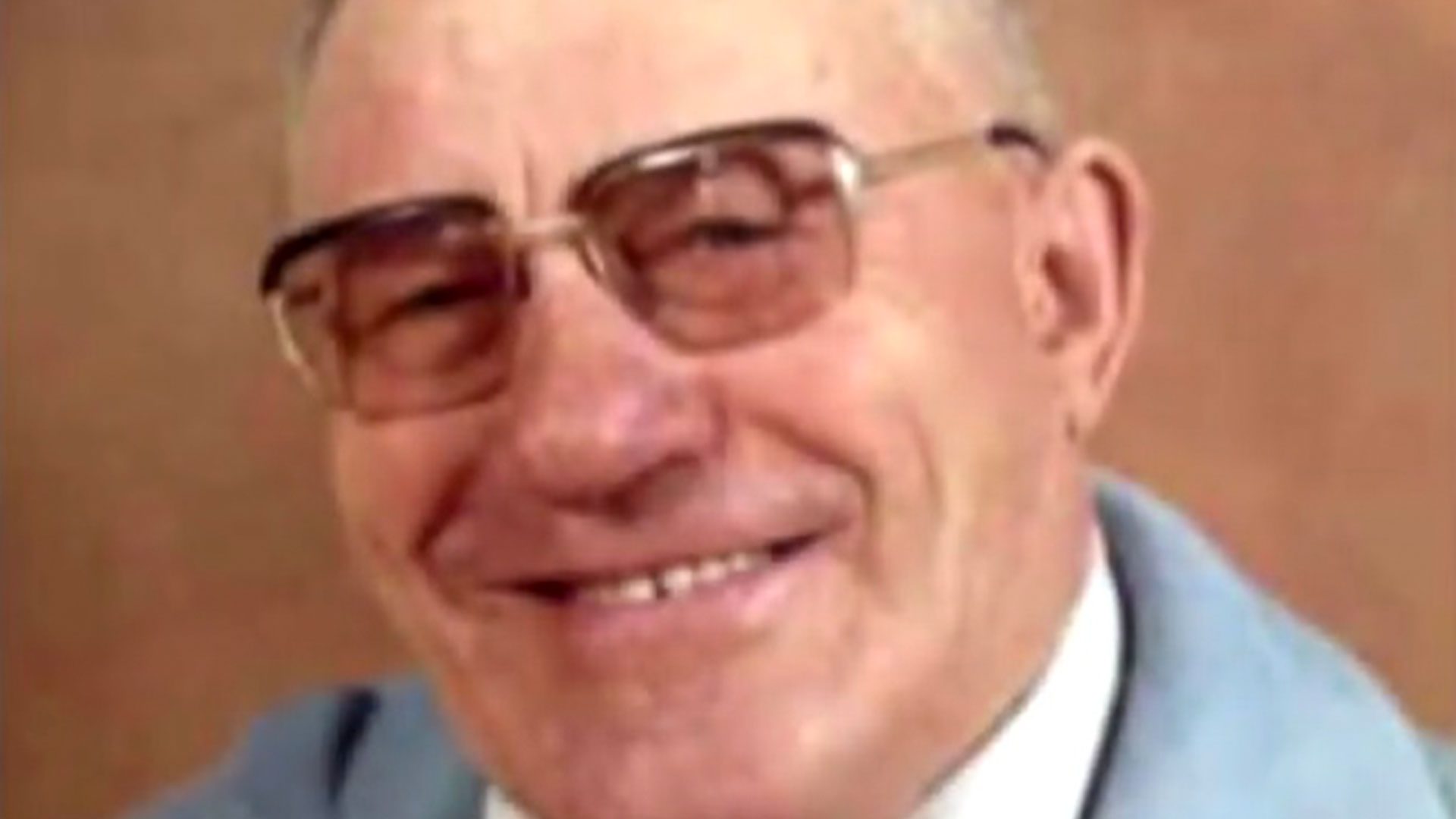
APTN News is challenging the application for a publication ban scheduled to be heard the morning of Nov. 24 in Yorkton, located 187 km northeast of Regina.
“This is a 31-year-old case…,” said Kim Beaudin, vice-chief of the Congress of Aboriginal Peoples (CAP), which represents Indigenous peoples living off reserve.
“It’s like they have a policy ’till death do us part.’ And they want to keep both Nerissa and Odelia tied up in the justice system for the rest of their natural lives.”
CAP organized the virtual news conference Monday morning to respond to the Crown’s latest move. The sisters were 18- and 20-years-old when they were convicted of second-degree murder in 1994.
They have apologized to Dolff’s family for the loss of their patriarch, 70, but said they did not kill him.
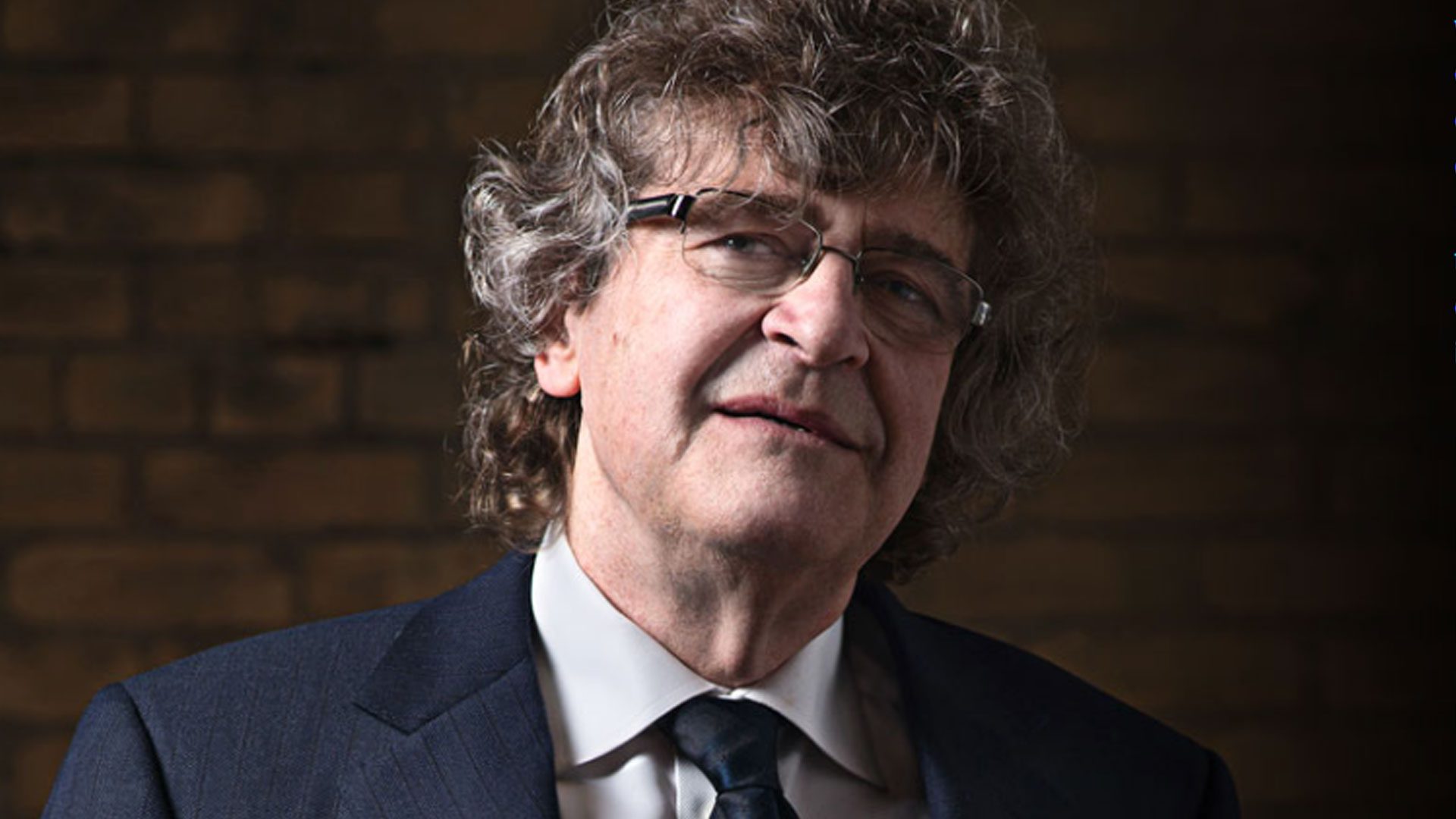
The sisters are not speaking publicly about the case.
Beaudin said the prosecution’s application shows the “systemic racism” Saskatchewan is known for.
“This is nothing more than race-based policy, race-based justice,” he said from Saskatoon. “Indigenous people in this province – and in Canada, as well – know that the systems are stacked against them…
“Unfortunately, the province has earned the nickname of ‘Alabama of the North’ (for its race-based relations).”
APTN did not receive a reply to its request for comment from Saskatchewan Justice Minister Bronwyn Ayr.

Both Beaudin and Sen. Kim Pate, who was part of the group, told reporters that Ayr should release the sisters on bail.
“The provincial government has the authority to determine what evidence is being provided,” Pate said from Ottawa. “To the best of my knowledge, they have not even produced disclosure yet.
“So they haven’t released the documents to (defence lawyer James) Lockyer…to enable him to know what the case is.”
This is the first case involving the potential wrongful conviction of Indigenous women adopted by Innocence Canada and Lockyer.
Pate said what happened and continues to happen to the Quewezance sisters is “emblematic” of the way victims of childhood abuse and survivors of residential schools are treated by Canadian courts.
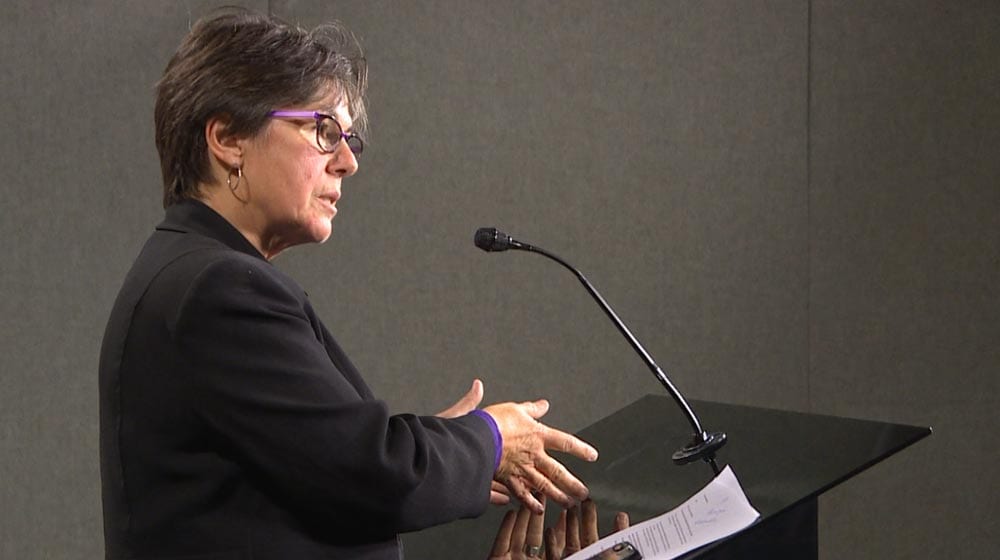
She cited statistics showing Indigenous inmates receive longer sentences, serve more of their time than non-Indigenous offenders, and spend a disproportionate amount of their sentence in segregation.
The Crown is expected to oppose the sisters’ application for bail.
Nicole Porter, a First Nations criminal consultant and behaviour analyst in Ontario, said she was introduced to the Quewezance case by David Milgaard, Canada’s highest-profile exoneree.
Milgaard was freed from a life sentence in Saskatchewan with the help of two Winnipeg lawyers after being wrongfully convicted of rape and murder in 1970. He died of a sudden illness six months ago.
Porter said Milgaard wanted to dedicate his life to helping other prisoners.

“He turned his horrendous experience into an opportunity to help others…I know he’s here today in spirit looking out for Odelia and Nerissa,” she told the news conference.
Milgaard was also lobbying the federal government to create a Criminal Conviction Review Commission to deal with wrongful convictions – the work Lockyer and Innocence Canada do now funded by donations.
“We are seeking a remedy for these Indigenous women, yet at every corner we face resistance from the very government that falsely put them away in the first place,” she alleged.
Following the news conference, Porter said she received a note from the assistant deputy attorney general of Saskatchewan that she shared with APTN.
Anthony Gerein thanked Porter for alerting him to the popular “Free Odelia & Nerissa Quewezance” petition she posted on Change.org.
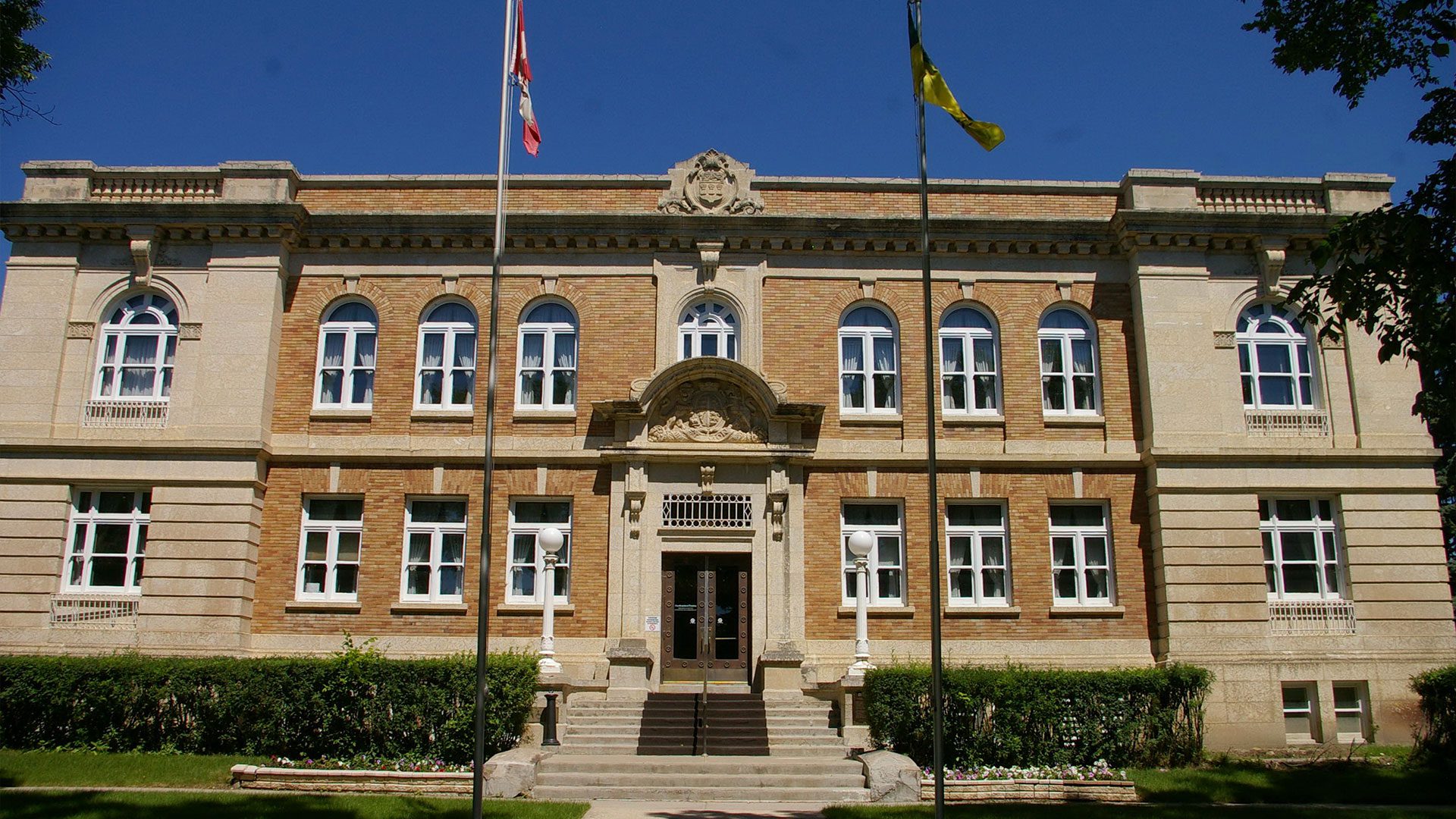
Gerein wrote that “petitions do not decide whether verdicts should or should not be overturned. There is a procedure to follow and objective principles to apply.”
He said the (ministerial) review under the Criminal Code (of Canada) was “proceeding as it should.”
And, he added, “…a court will decide whether any proceedings regarding the subject of bail should be publicized, again applying the lawful procedures and considering objective principles.”
He encouraged Porter “and others to keep following the matters.”
Public Prosecutions
APTN did receive a comment from the Public Prosecutions service in Saskatchewan.
In an email, a spokesperson said publication bans were “standard practice” in bail hearings, a ban and sealing order may be requested “to ensure fairness” in future legal proceedings, and the open court principle could “negatively affect any potential future proceedings.”




